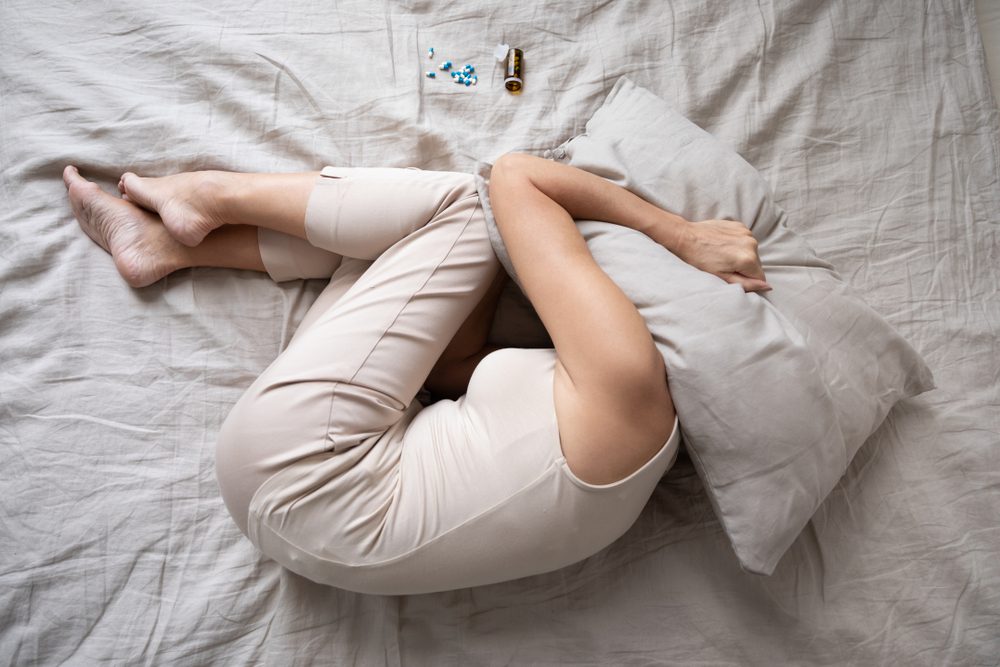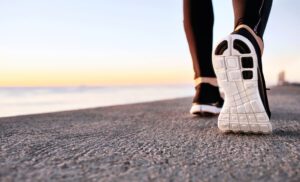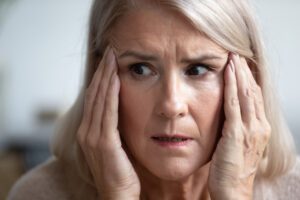
Sleeping well enough during the night is at times even more important than regular exercise and a healthy diet. Research actually sustains the idea that poor sleep might have immediate and negative effects on your hormones, exercise performance, and brain function.
It might also cause weight gain and increase disease risk, no matter the age or gender. In exchange, proper sleep will help you to consume less, exercise better, and keep better overall health. Over the past few decades, our sleep quality and quantity have continuously decreased.
Why? In fact, there are more people now that sleep poorly than those who get a good night’s sleep. If you want to be a part of the second category, you have to adapt to a certain kind of lifestyle. Here are 17 things that will definitely help you sleep better:
Increase your bright light exposure during the day
Your body has its own natural time-keeping clock that is also known as your circadian rhythm. It might affect your brain, body, and hormones, as it helps you stay awake and tells your body when it’s time for you to sleep.
Natural sunlight or bright light throughout the day will maintain your circadian rhythm healthy and stable. In other words? You will have lots of energy throughout the day, but also a better nighttime sleep quality and duration.
For those who suffer from insomnia, daytime bright light exposure helped improve sleep quality and duration. It also shortened the time it needed to fall asleep by 83%.
Reduce the blue light exposure in the evening
Exposure to light throughout the day is great, but nighttime light exposure…you guessed…has the EXACT opposite effect. This happens only because it messes with your circadian rhythm, which tricks your brain into thinking that it’s still daytime.
It will also reduce hormones in your body such as melatonin, which is responsible for making you feel more relaxed and get a deep sleep. Electronic devices, including smartphones and computers, emit blue light in big amounts, and in this matter, they’re the worst. There are various popular methods to reduce the nighttime blue light exposure, which include:
- Wearing glasses that block the blue light
- Downloading an app like f.lux to block blue light on your laptop or computer
- Installing an app that blocks blue light on your smartphone
Don’t drink caffeine late in the day
Caffeine is a great product with many benefits. Not only is consumed by 90% of the US population, but it’s also extremely beloved. A single dose of caffeine can increase focus, energy, and sports performance. BUT, when you drink it later in the day, caffeine stimulates your nervous system and might stop your body from detaching from the daily stress at night.
There’s one study that shows how consuming caffeine up to 6 hours before bed will significantly worsen your sleep quality. Caffeine can remain in your blood for 6-8 hours. That’s why drinking big amounts of coffee after 4 p.m. isn’t really recommended, particularly if you know you’re a bit sensitive to caffeine or experience trouble sleeping.
Reduce irregular or long daytime naps
Even if short power naps are good, long or irregular napping during the day will have a negative impact on your sleep. Sleeping during the day might confuse your internal clock, which means that you will struggle to sleep at night.
Even more, there’s one study that showed how participants were more tired during the day after taking daytime naps. There’s another study that proved how napping for 30 min or even less might enhance daytime brain function, but longer naps might harm your health and sleep quality.
Even so, some studies are showing how those who are used to sleeping regularly during the daytime don’t suffer from poor sleep quality or disrupted sleep at night.

Try sleeping and waking up at consistent times
Your circadian rhythms work on a set loop, as it aligns itself with the sunrise and sunset. Why does everyone recommend respecting a consistent schedule with your sleep and waking times? That’s why, because it will improve your long-term sleep quality.
There’s one study that shows how participants who suffered from irregular sleeping patterns went to bed late on the weekends and reported poor sleep. There are many other studies that show how irregular sleep patterns might affect your circadian rhythms, alongside your levels of melatonin, which lets your brain know that you have to sleep.
If you experience trouble sleeping, make sure you get in the habit of waking up and going to bed at the approximately same hour. Because after a couple of weeks, you won’t even need an alarm.
Take a melatonin supplement
Melatonin is a highly essential sleep hormone that will let your brain know when it’s the right time to relax and head to bed. Melatonin supplements are a wildly popular sleep aid. They are often used to treat insomnia because their properties are so good when it comes to falling asleep faster.
There’s one study that shows how taking 2 mg of melatonin before going to bed will improve sleep quality and energy the next day, and will help people to fall asleep easier. Even better, no one ever manifested any kind of withdrawal effects.
It can be extremely practical to carry melatonin with you, especially when you’re traveling and adjusting to new time zones because it might help your body’s circadian rhythms to get back on its track.
Consider using these supplements
And if we’re talking about supplements, here are a couple of things you could take to induce relaxation and help you sleep:
- Ginkgo biloba – Here’s a natural herb with lots of benefits. It will enhance your sleep, relaxation, and stress reduction. You can take 250 mg 30-60 minutes before going to bed.
- Glycine – There are a couple of studies that showed how taking 3 grams of the amino acid glycine will improve your sleep quality.
- Valerian root – Valerian is well known for helping out with sleep problems, but also improving sleep quality. Take 500 mg before bed.
- Magnesium – Magnesium is the one responsible for 600 reactions in your body, which also include relaxation and enhanced sleep quality.
- L-theanine – An amino acid, L-theanine can help with your relaxation and sleep issues. Take 100-200 mg before bed.
- Lavender – Lavender is a wonderful herb, especially when it comes to its many health benefits. Lavender can induce a calming and sedentary effect to improve your sleeping issues. You can take 80-160 mg containing 25-46% linalool.
Not only you should try these supplements one at a time, but you should also remind yourself that they’re not magic bullets for your sleeping problems.
Don’t drink alcohol
Did you know that having a couple of drinks every night might have a negative impact on your sleep and hormones? Alcohol can cause or even increase the symptoms of sleep apnea, snoring, and disrupted sleep patterns.
It can also have an impact on the amount of melatonin your body produces at night, which you well know plays an essential role in your body’s circadian rhythm. There’s another study that shows how alcohol consumption at night can decrease the natural nighttime elevations in HGH, which is known as the human growth hormone.
HGH plays an important role in your circadian rhythm and has lots of key functions.

Optimize your bedroom environment
Do you know how many people put emphasis on the way their bedroom looks? You probably never thought about it, but its setup can impact how much you’re sleeping. Some of the things you need to take into consideration when it comes to your bedroom environment are the temperature, noise, external lights, and furniture arrangement.
Numerous studies are pointing out that the external noise, which oftentimes comes from traffic, can affect your sleep quality and increase the chances of long-term health issues. In one study that was conducted in the bedroom environment of women, 50% of participants have noticed an improved sleep quality when noises and lights were diminished.
Set your bedroom temperature
Body and bedroom temperature might have a great impact on your sleep quality. You probably noticed that during hot and steamy summer nights, in hot locations, you ALWAYS have a problem sleeping. All this is natural, given the fact that it’s way too warm!
In fact, there are various researches that prove how sleep quality is affected more by temperature than by noises. Other studies show that increased body and bedroom temperature can affect the quality of sleep and increase wakefulness. It seems that around 70°F (20°C) is the most comfortable temperature for most people.
Don’t eat late in the evening
Eating too late in the night might have a negative impact both on our sleep quality and the natural release of HGH and melatonin. That being said, the quality and type of your late-night snack might have a negative impact on your insomnia-prone habits, too.
In one of the studies that focused on this matter, a high-carb meal eaten 4 hours before going to bed actually helped people fall asleep faster. What’s even more interesting is that, apparently, a low-carb diet might have been found to improve sleep, which helps us draw the conclusion that carbs aren’t always needed, especially if you’re used to a low-carb diet.
Chill and clear your mind in the evening
Do you know how many people out there have a scheduled pre-sleep routine that helps them relax and detach from all the nonsense carried along the day? Relaxation techniques before bed will improve your sleeping quality, as the same techniques are used by professional therapists to treat insomnia.
There’s one study that showed how a relaxing massage had a positive impact on the sleep of people who were ill. Some of the strategies you could try are listening to relaxing music, reading a book, taking a hot bath, meditating, deep breathing, and even visualization.
Take a relaxing bath or shower
A relaxing bath or shower is another efficient way to sleep better. Studies show that taking a shower before bedtime can improve the overall sleep quality and help you fall asleep much faster. In fact, in one of the many studies, taking a hot bath for 90 straight minutes before bed did wonder when it came to sleeping quality, and the subjects were people who couldn’t sleep.
As an alternative, if you don’t want to take a full bath every night, you can simply bathe your feet in hot water, as it will help you relax and it will improve your sleep.
Make sure you don’t suffer from any sleep disorder
Although we offer all kinds of options for your sleeping problems, it’s worth considering an underlying health condition too. One of the most common problems can be sleep apnea, which is at fault for causing inconsistent and interrupted breathing.
People who suffer from this disorder oftentimes stop breathing in the middle of the night. However, the condition is more common than you might have thought. In one review, 24% of men and 9% of women currently suffer from sleep apnea.
Another common medically diagnosed illness can be related to sleep movement disorders and circadian rhythm sleep/wake disorders, which are most common in those who work in shifts.
Get yourself a comfortable bed, mattress, and pillow
Did you ever wonder why are you sleeping better in a hotel? Apart from having an extremely relaxing environment, the quality of your bed can have a negative impact on your sleep. One study has looked into the benefits of having a new mattress for 28 days, and it revealed that it reduced back pain by 57%, shoulder pain by 60%, and back stiffness by 59%.
Should I also add that it enhanced sleep quality by 60%? There’s also another study that points out how new bedding can have a lot to do with proper sleep. Plus, poor-quality bedding might lead to increased lower back pain.
Of course, the proper mattress and bedding will always be subjective. So if you decide to upgrade your bedding, we strongly recommend you base your decision entirely on your personal preferences.
If you enjoyed reading this article, we also recommend reading: 20 Best Foods to Freeze for Cutting Down Costs






